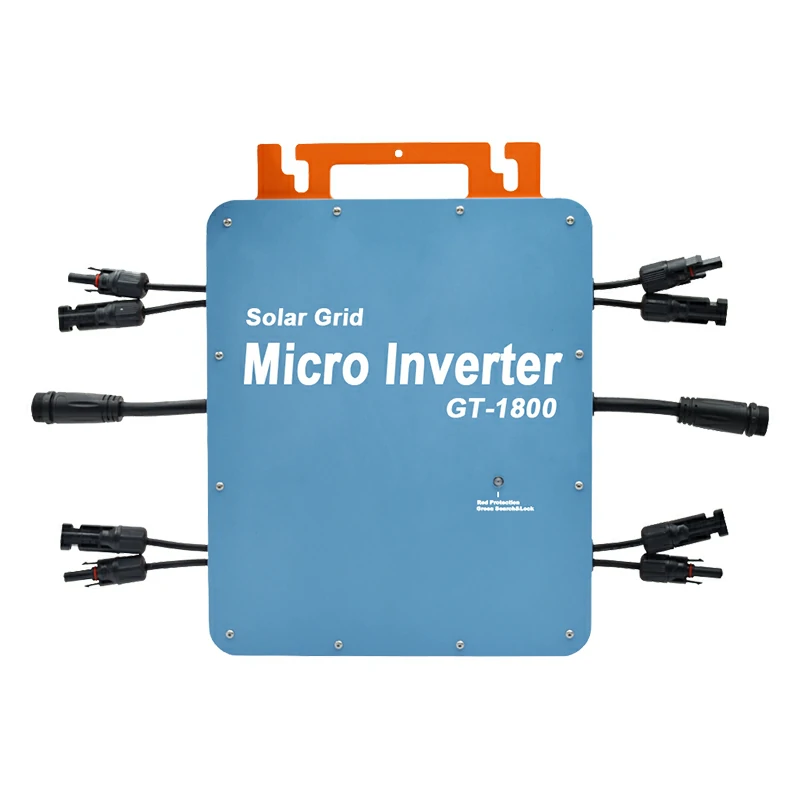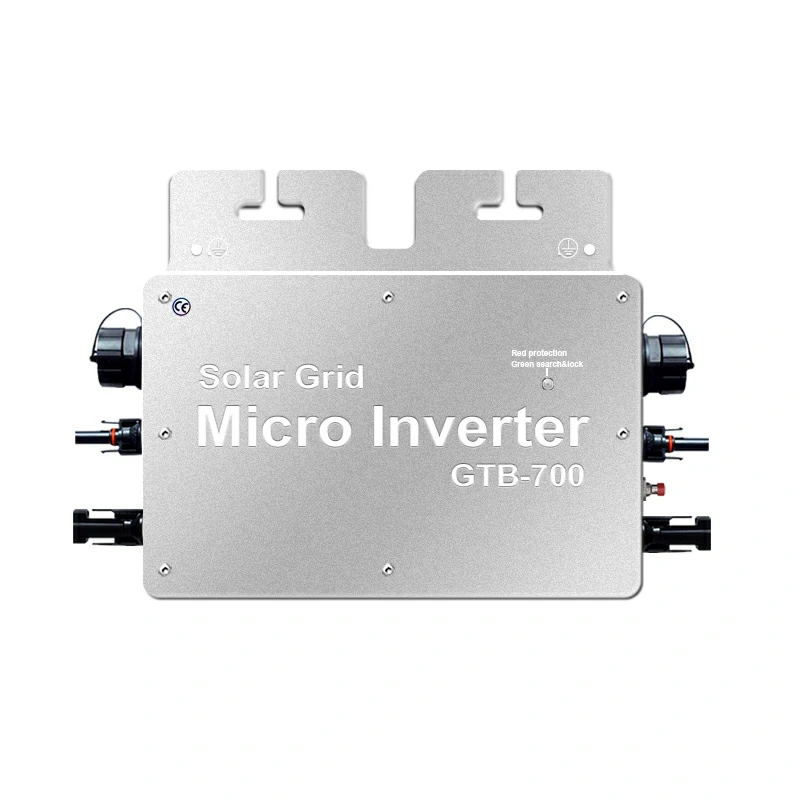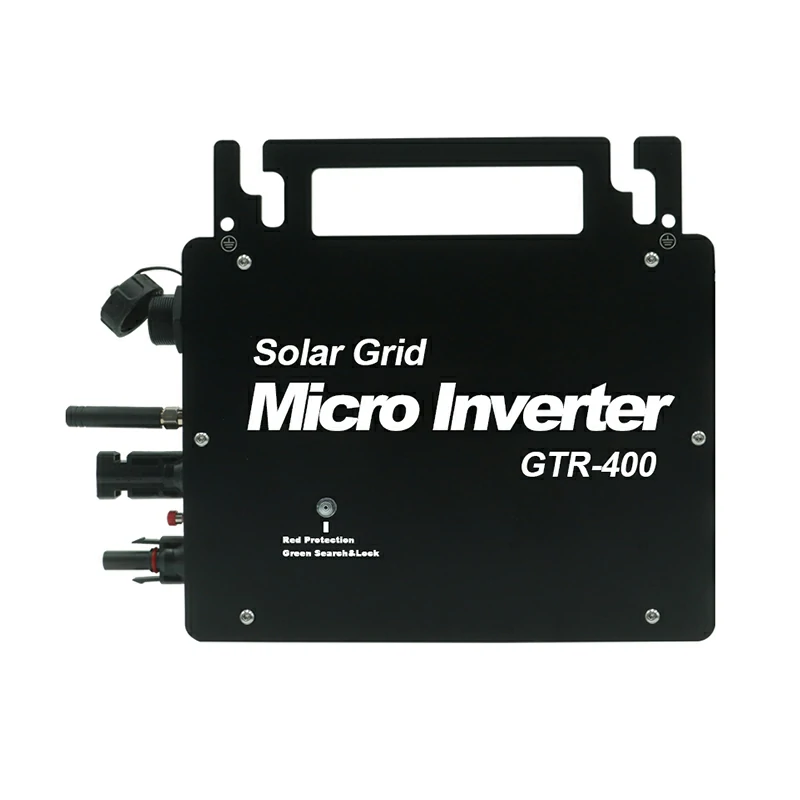Introduction

Shading is a common challenge faced in solar energy systems, significantly impacting the efficiency of solar panels. Fortunately, advancements in solar technology, particularly the introduction of micro inverters, have provided a viable solution. As custom micro inverter manufacturers, we understand the importance of optimizing solar panel performance despite shading constraints.
The Impact of Shading on Solar Panel Performance

Shading, even if partial, can drastically reduce the energy output of solar panels. Traditional solar systems, which often use a central inverter, can experience significant power losses due to the ‘Christmas Light Effect,’ where one shaded panel affects the performance of the entire string.
Understanding the Shading Problem
- Sources of Shading: Common shading sources include trees, buildings, and even dirt or debris accumulation on the panels.
- Non-Linear Power Loss: Shading on even a tiny part of the panel can lead to disproportionate losses in power output.
As solar micro inverter manufacturers, we recognize the need for solutions that address these unique challenges presented by shading in solar installations.
How Micro Inverters Address Shading Issues
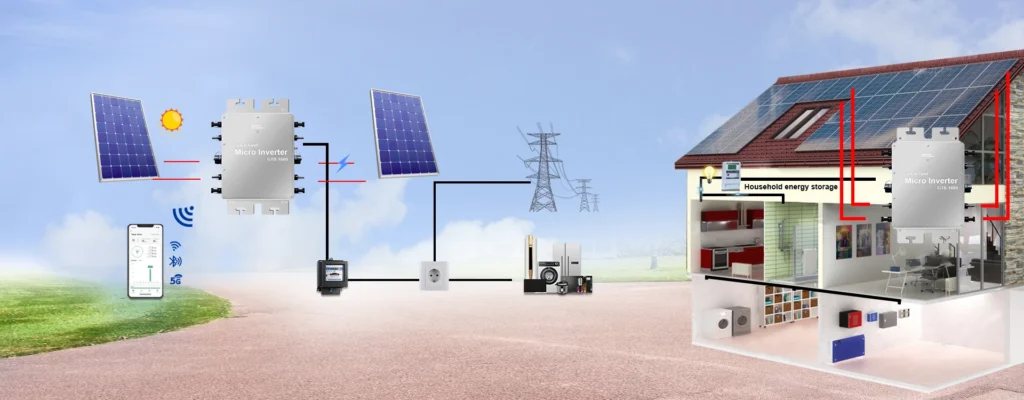
Micro inverters represent a significant advancement in solar technology, offering an effective solution to the shading problem. Unlike traditional central inverters, microinverters are installed at the panel level, which means each panel functions independently.
Working Principle of Micro Inverters
- Individual Panel Optimization: Each solar panel with a micro inverter operates independently, ensuring that shading on one board does not affect the performance of others.
- Efficiency in Varied Light Conditions: Micro inverters are designed to maximize energy conversion, even in less-than-ideal lighting conditions caused by shading.
The Role of Micro Inverters in Overcoming Shading
- Minimizing Energy Loss: Micro inverters significantly reduce the power loss typically associated with shaded solar panels by optimizing each forum separately.
- Adaptability: Micro inverters can adjust to varying degrees of shading throughout the day, maintaining optimal energy production.
As custom solar micro inverter manufacturers, we focus on providing solutions that ensure consistent energy output despite the challenges posed by shading.
Comparing Micro Inverters to Traditional Inverters
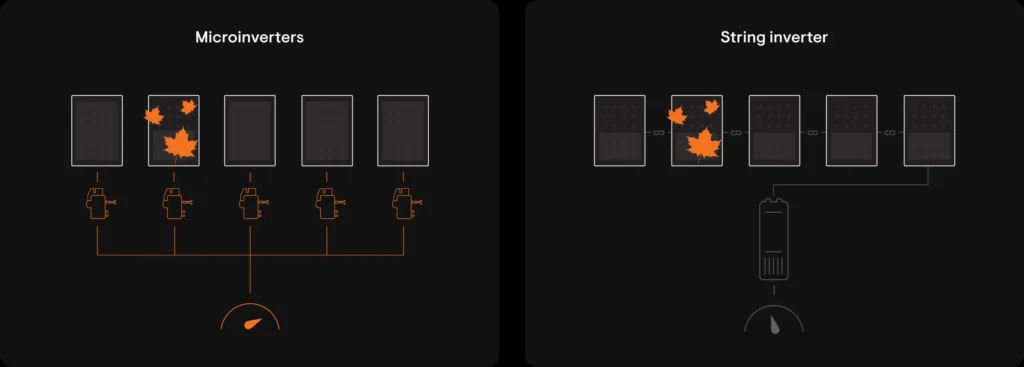
Understanding their differences in handling shading issues is crucial when choosing between microinverters and traditional central inverters.
Advantages of Micro Inverters Over Central Inverters
- Individualized Panel Performance: Micro inverters ensure that the performance of each panel is not hindered by others, which is a significant limitation in systems using central inverters.
- Improved Energy Harvest: By maximizing the output of each meeting, micro inverters can enhance the overall energy yield, especially in scenarios where shading is variable and unpredictable.
Cost and Installation Considerations
- Initial Investment: While micro-inverters might have a higher upfront cost than central inverters, their ability to maximize energy production can lead to more significant savings in the long run.
- Installation Complexity: Micro inverters are generally more accessible and more flexible to install, as they do not require complex string sizing and can be added to individual panels as needed.
As customized micro inverter manufacturers, we understand the importance of providing options catering to various budgets and installation requirements without compromising efficiency and reliability.
Additional Benefits of Micro Inverters

Beyond addressing shading issues, micro inverters offer several other advantages that make them an attractive option for solar energy systems.
Enhanced System Reliability and Safety
- Reduced System Downtime: With micro inverters, issues in one panel don’t affect the entire system, leading to less downtime and more consistent performance.
- Increased Safety: Micro inverters reduce the risk of high-voltage DC power, making solar systems safer to operate and maintain.
Monitoring and Maintenance Advantages
- Individual Panel Monitoring: Micro inverters allow for advanced monitoring at the panel level, enabling precise troubleshooting and efficient maintenance.
- Long-Term Durability: Designed for longevity, micro inverters often come with extended warranties, reflecting their durability and long-term value.
As manufacturers of customized solar microinverters, we integrate these features to ensure that our clients overcome shading challenges and enjoy enhanced system performance and reliability.
Market Applications and Case Studies of Micro Inverters
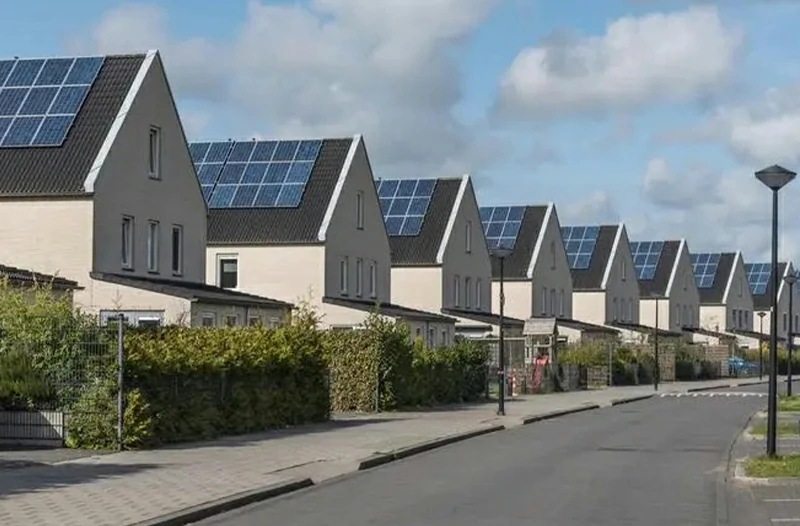
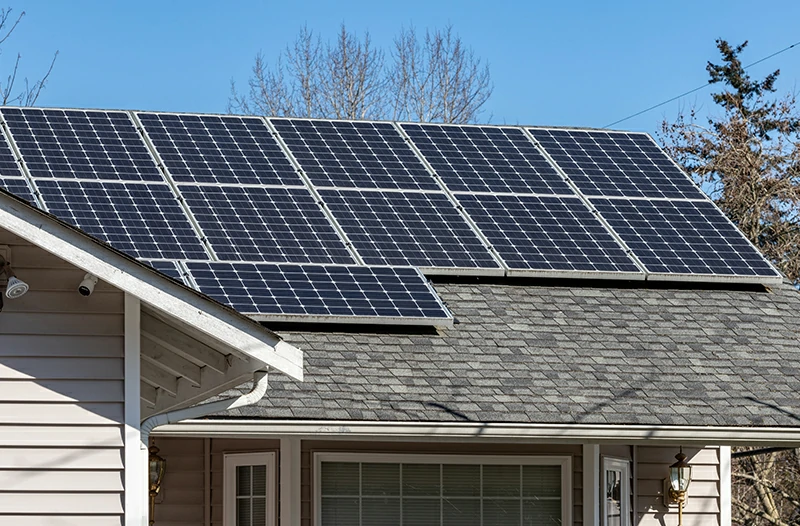


The practical application of microinverters in diverse settings highlights their effectiveness in managing shading issues and enhancing overall solar panel performance.
Real-World Applications
- Residential Solar Installations: In homes where roof shading can vary, micro inverters optimize each panel’s output, ensuring efficient energy production.
- Commercial and Industrial Use: Businesses with large, complex solar arrays benefit from the modular nature of micro-inverter systems, allowing for scalable and flexible solar solutions.
Case Studies Demonstrating Success
- Success in Varied Environments: Case studies worldwide show how micro inverters have successfully addressed shading in different geographical and environmental conditions.
- Long-Term Performance: Reports from long-term users demonstrate the sustained efficiency and reliability of micro-inverter systems, even in challenging scenarios with significant shading.
As a manufacturer specializing in custom solar microinverters, we are committed to providing solutions that meet diverse needs and deliver consistent, reliable performance.
Frequently Asked Questions about Micro Inverters
To further clarify the role and benefits of microinverters in solar energy systems, let’s address some common questions:
How Do Micro Inverters Handle Extreme Shading Scenarios?
- Micro inverters are designed to optimize performance under various shading conditions, ensuring that the unaffected panels maintain their maximum output even in extreme cases.
Are Micro Inverters Suitable for All Types of Solar Installations?
- While particularly beneficial for installations with shading concerns, micro inverters can enhance performance and provide additional benefits in a wide range of solar setups.
What Is the Expected Lifespan of a Micro Inverter?
- Generally, micro inverters have a longer lifespan than traditional central inverters, often backed by manufacturer-extended warranties.
Conclusion
The integration of microinverters in solar panel systems marks a significant advancement in overcoming the challenges of shading. By optimizing individual panel performance, enhancing safety, and improving system reliability, micro inverters offer a comprehensive solution for efficient solar energy production. As custom micro inverter manufacturers, we are at the forefront of this technology, committed to innovating and supplying products that meet the evolving needs of solar energy users worldwide. Embracing micro-inverter technology is a step towards more sustainable and efficient solar energy solutions.

